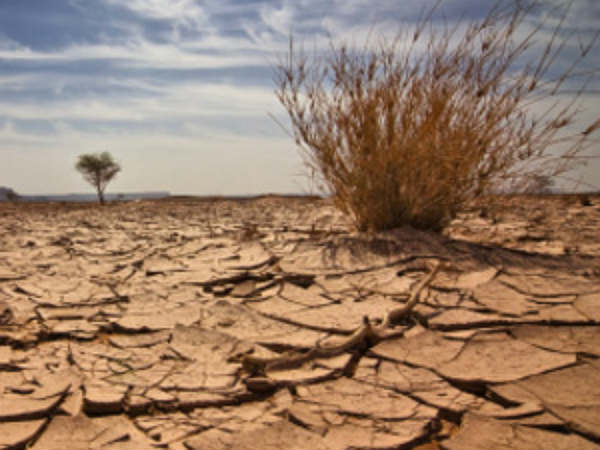
Facing worst drought in 100 years, showers and toilet restrictions imposed in Cape Town
"Restrictions are going to be a reality for the foreseeable future,” a city councillor has said.
India and its farmers are no strangers to droughts and the problems that the shortage of water brings with it. From crop failure to water tanks of apartment buildings running dry following low rainfall are realities most Indians are aware of.
And this is the reason that every news report that talks about the monsoon are treated with so much curiosity. While the reports of lower than expected monsoons bring worries, those of a normal or better one witness much relief followed by hopes of them turning true. As can be seen by the current reports of the Indian monsoon having arrived on time to the southern parts of the country.

But sadly, for the residents the South African city of Cape Town, and its surrounding areas, there seems to be no such reason for joy. The city, which is the country's most famous tourist spot, is suffering its worst drought in a century.
And the city including its neighbouring regions has been declared a disaster area by the local government, as just a tenth of the usable water is left in the dams which supply it.
Such an extreme situation has led the authorities to impose strict restrictions on the use of water. With reports claiming the residents having been told to keep their bath time to two minutes and to flush toilets only when "absolutely necessary."
The reason behind such instructions lies around two hours from the city of Cape Town. The Theewaterskloof Dam, which is the main source of water for the city, has reportedly run dry.
"I've worked here for about 20 years and I've never ever seen the dam this low," Lise Wheeler, secretary of the local watersport club has reportedly told AFP news agency.
Though the situation has now reached an extreme stage, it has not come all of a sudden. The residents have seemed the situation gradually escalate, as restrictions reportedly started from the limits on splashing water at public pools earlier this year to the current ban on filling up swimming pools and also on watering gardens.
And now, the restrictions have limited residents to use no more than a hundred litres per person every day with authorities trying to rule out tits usage for anything but cooking, drinking and essential cleaning.
"The best strategy to manage a drought effectively is to manage demand, which is what we are doing," city councillor for water, Xanthea Limberg, is reported to have said.
Earlier the city had even taken the extreme step of publishing a name-and-shame list of the worst water offenders in the city, while it also issued fines and notices to appear in court in such cases.
Though for all the restrictions the authorities have imposed, officials themselves have also faced criticism for their alleged failure to impose and implement such rules earlier according to the report.
And the shortage of water is not the only problem that the drought seems to have created for residents, as the report said that many residents of the city are collecting their own water at a natural spring outside the city, as they believe the low water levels at the dam have led to a decline in the quality of the tap water.
"This is the only drinkable water I can get," one resident is reported to have said about the water from the spring, to the news agency.
And things might not ease up anytime soon as the report claimed that University of Cape Town climate scientist Peter Johnston has said that officials are faced with a long-term problem.
"What we've had now is three seasons in a row where the rainfall has been low, and that's a one-in-a-hundred-year occurrence," Johnston is reported to have told the agency.
And as Cape Town suffers from the drought, strong summer rains have witnessed the rest of the country recover from the drought. But for the city, southern hemisphere's winter is when it receives most of its rain and scientists have reportedly warned that there is no guarantee of a good rainy season.
Johnston reportedly said, "Even if we get a real wet winter, those dam levels are only going to go up by about 40 to 50%." And he added, "If we get regular good rainfall, we're still going to be pretty much in the same position this time next year. That's the scary bit."
As per the report, many climate models have pointed to a hotter and drier Western Cape, with high-pressure systems blocking rain-carrying fronts more frequently. "This means that even if the situation stays the same in terms of population size and water usage, the long-term future is for less water falling out the sky," Johnston is reported to have said.
This all points to the fight for water for the people of Cape Town to continue for the foreseeable future as Limberg the city counsellor has reported having said, "Restrictions are going to be a reality for the foreseeable future."
OneIndia News


 Click it and Unblock the Notifications
Click it and Unblock the Notifications


































